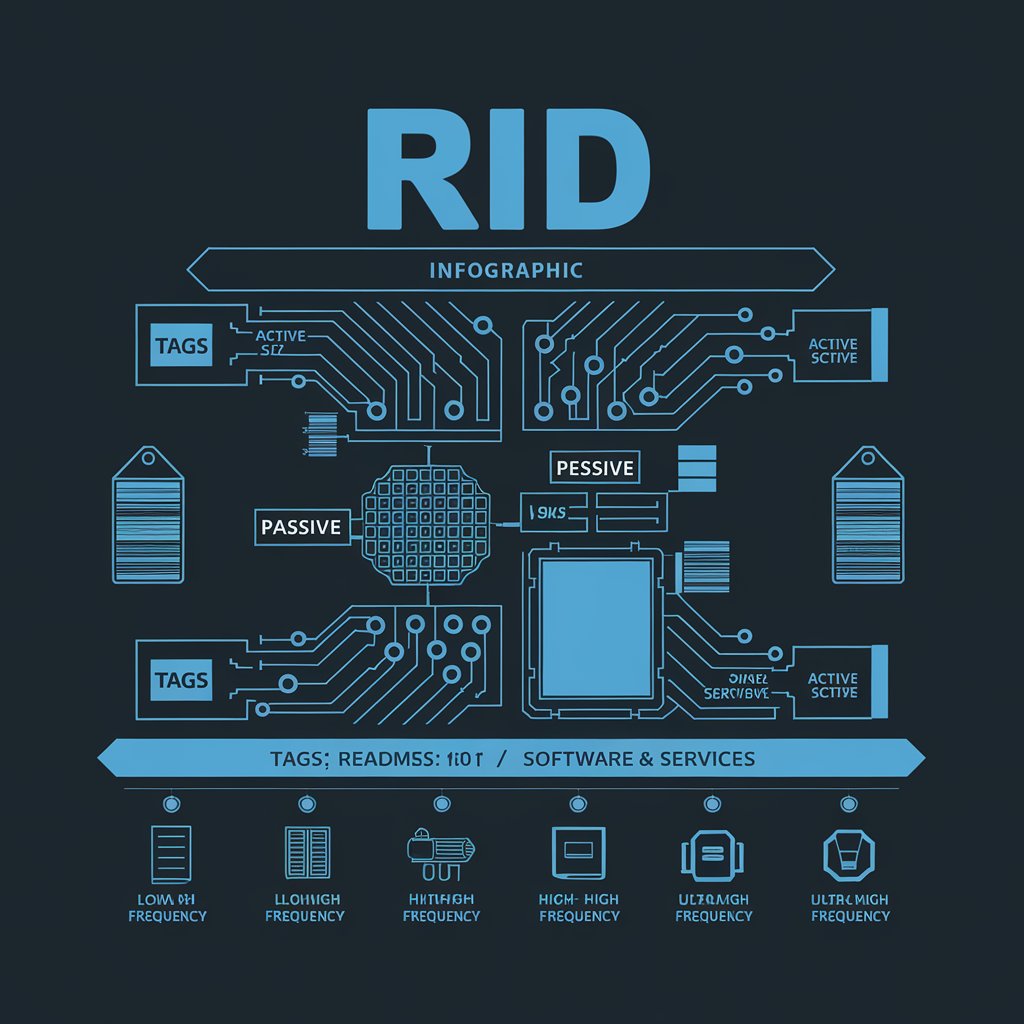The integration of RFID (Radio-Frequency Identification) tags with IoT (Internet of Things) technologies is transforming the way supply chains operate, making them smarter, more responsive, and highly efficient. RFID tags, which can store data about items and transmit it wirelessly, are becoming critical components in IoT-driven supply chains. By pairing RFID technology with IoT networks, businesses can achieve end-to-end visibility, better inventory management, enhanced security, and real-time data insights, leading to reduced costs and improved customer satisfaction. As the global demand for efficient, transparent, and resilient supply chains grows, the potential of RFID tags in IoT-connected smart supply chains is becoming increasingly evident.
The Role of RFID Tags in IoT-Enabled Supply Chains
In traditional supply chains, tracking and managing inventory or assets has often been a complex and time-consuming process. RFID technology helps solve these challenges by enabling items to be tagged with small, data-rich devices that communicate wirelessly. Unlike barcodes, which require line-of-sight scanning, RFID tags can be read automatically within a certain range, making them ideal for tracking goods at various stages of the supply chain without manual scanning. Each tag can store and relay critical data, such as item location, status, and environmental conditions like temperature or humidity, enabling a wealth of real-time information.
When connected to an IoT network, these RFID tags act as intelligent sensors, automatically transmitting data to a centralized platform that monitors the movement of goods across locations. This capability provides companies with a complete, real-time view of their supply chains. With IoT-enabled RFID tags, companies can continuously monitor inventory levels, track shipments in transit, and ensure optimal storage conditions. This not only reduces the risk of errors and losses but also helps prevent overstocking or stockouts, as businesses can forecast demand more accurately based on real-time data.

Key Benefits of RFID Tags in Smart Supply Chains
- Real-Time Visibility: IoT-enhanced RFID tags provide unparalleled visibility across supply chains. With every tagged item communicating its location and status, companies can see exactly where their assets are at any given time. This real-time visibility is crucial for industries with complex supply chains, such as retail, automotive, and pharmaceuticals. It ensures that companies can respond quickly to delays, reroute shipments if necessary, and keep their customers informed.
- Enhanced Inventory Management: RFID tags integrated with IoT help optimize inventory management by providing accurate and up-to-date information. For example, in retail, RFID tags allow businesses to maintain optimal stock levels and reduce losses from misplaced items. IoT networks can aggregate this data and deliver insights into inventory turnover rates, demand forecasting, and shelf restocking, helping companies save costs and improve operational efficiency.
- Improved Security and Compliance: RFID tags in IoT-connected systems enhance security by reducing the risk of lost, misplaced, or stolen goods. Each tagged item can be tracked at every stage, which is particularly beneficial in industries dealing with high-value or regulated products, such as pharmaceuticals and electronics. Furthermore, RFID tags can monitor environmental conditions, ensuring compliance with standards for temperature-sensitive products like food and vaccines.
- Predictive Maintenance and Reduced Downtime: In supply chains that involve machinery or high-value equipment, RFID tags combined with IoT can also track equipment conditions and usage patterns. This enables predictive maintenance, where companies can anticipate equipment issues and service machinery before breakdowns occur, reducing downtime and ensuring smoother operations.
The Impact of IoT-Enabled RFID Tags on Logistics and Warehousing
Logistics and warehousing are among the biggest beneficiaries of IoT-enabled RFID technology. RFID tags can streamline warehouse operations by automating tasks such as checking inventory levels, locating specific items, and confirming order accuracy. For example, a warehouse equipped with IoT-connected RFID systems can automatically update inventory counts when items are moved or shipped, eliminating the need for manual checks and reducing human error. This enhances the speed and accuracy of order fulfillment, which is crucial in e-commerce and retail, where timely delivery is critical to customer satisfaction.
In transportation and logistics, IoT-connected RFID tags make it easier to track shipments in real-time, providing updates to logistics teams and customers. This is particularly useful for managing perishable or high-value items that require careful handling. Logistics companies can use this data to optimize routing and reduce delivery times, lowering fuel costs and minimizing carbon emissions. As a result, RFID tags in IoT-connected systems contribute to creating more sustainable supply chain models.
Future Outlook: The Expanding Role of RFID in IoT-Driven Supply Chains
As RFID tags become more advanced and cost-effective, their role in IoT-enabled smart supply chains is expected to expand. The development of RFID tags with greater data storage capacity, increased durability, and enhanced range will make it easier for businesses to use them in a wider array of environments. Additionally, as 5G networks continue to roll out globally, the faster data transmission and lower latency will enhance the performance of IoT systems, enabling more precise tracking and quicker response times in supply chains.
In the future, the integration of AI with IoT and RFID will likely take supply chain efficiency to new heights. Machine learning algorithms can analyze the data generated by RFID tags to provide predictive insights, identify optimization opportunities, and automate decisions. For example, AI could use RFID data to anticipate demand surges, helping businesses adjust their supply chain strategies accordingly. This kind of adaptability will become increasingly valuable in today’s fast-paced, unpredictable global markets.
The potential of RFID tags in IoT-enabled smart supply chains is vast, offering significant benefits in terms of visibility, security, efficiency, and sustainability. By providing real-time, accurate data across various stages of the supply chain, RFID tags help businesses streamline their operations, minimize costs, and enhance customer satisfaction. As IoT technology and RFID continue to evolve, their combined impact on supply chains will undoubtedly grow, making them essential tools in the future of intelligent supply chain management. Businesses that leverage RFID tags within IoT frameworks will be better positioned to meet the demands of a digital, data-driven economy, reaping the rewards of a truly connected and resilient supply chain.
